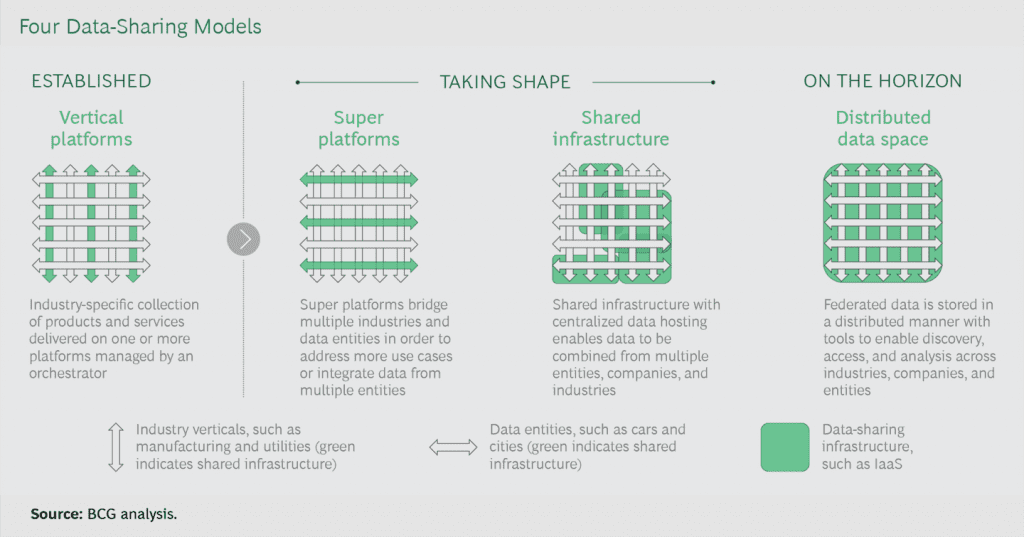This is the ninth article in a multipart series.
On its own, most data has limited value. But when aggregated with other data and forged into insights and applications, data can transform businesses, create enormous value, and help solve some of our biggest societal problems. But all these powerful use cases depend on the sharing of data, which holds risks and has ramifications that can deter many companies from acting on potential opportunities.
The challenges of data aggregation have led to the emergence of platforms and ecosystems that facilitate data sharing. These are growing in size and number (think smart cites), and more and more of them are enabling integrated, citizen- and business-centric solutions that use data from disparate sources. Tech giants, being data-centric businesses, have established themselves as early movers in shaping the data-sharing marketplace.
As the benefits of data aggregation increase, four models appear most likely to facilitate broad data sharing within and across industries. Companies that are thinking about participating in data ecosystems need to consider the opportunities—and the risks—that each one presents.
The first, vertical platforms, is already established. Two others—super platforms and shared infrastructure—are beginning to take shape. These are all models in which data is centralized, which has many benefits. But because these approaches can concentrate data in just a few repositories, they potentially raise issues regarding control over the market, access to the data, and the value the data generates. We believe that on the horizon is a viable fourth, decentralized model, in which syndicated data resides at its source and is accessible to others. (See the exhibit.)



